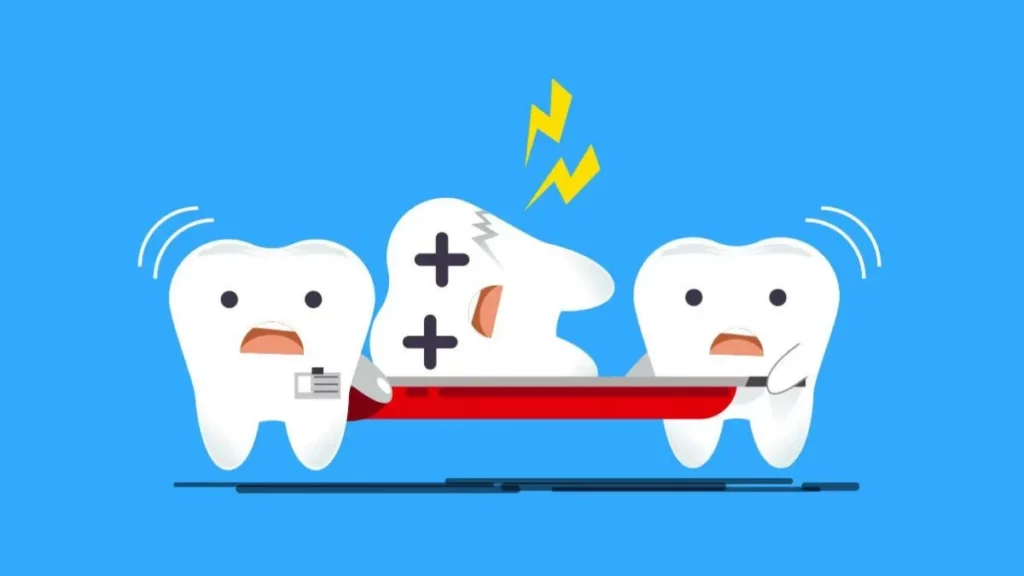
Restoring and Protecting Your Smile
Maintaining dental health is essential for overall well-being, and sometimes that means more than just regular cleanings or checkups. When teeth become damaged due to decay, injury, or wear, dental crowns can be a reliable solution for restoring both the function and appearance of your teeth. At GPS Dental, dental crowns are a highly effective treatment option for various dental concerns, providing protection, strength, and aesthetic enhancement.
This blog will cover what dental crowns are, why they are necessary, the different types of crowns available, and why choosing GPS Dental for your crown treatment can make all the difference for your smile.
What Are Dental Crowns?
Dental crowns, commonly known as “caps,” are custom-made restorations that fully cover a damaged tooth to protect it from further harm and restore its shape, size, strength, and appearance. Crowns are used in situations where a tooth is too damaged to be repaired with a simple filling or other treatments.
At GPS Dental, crowns are designed with precision, utilizing materials like porcelain, ceramic, metal, or combinations of these. Each material offers specific benefits, so the choice of crown depends on your personal dental needs, preferences, and lifestyle.
When Are Dental Crowns Necessary?
Dental crowns are versatile and are used in various situations. Your GPS Dental team may recommend a dental crown for any of the following reasons:
1. To Protect a Weak Tooth
When a tooth is weakened by decay, fractures, or other damage, a dental crown helps protect it from breaking or further decay. The crown acts as a protective cover, shielding the tooth from additional harm.
2. To Restore a Broken or Severely Worn Tooth
Teeth can become worn down over time due to grinding (bruxism) or the natural wear and tear of chewing. A crown can restore the tooth’s shape and function, ensuring you can chew comfortably and smile with confidence.
3. To Support a Tooth with a Large Filling
When a tooth has a large filling and little natural tooth structure remains, a crown can be placed over the tooth to provide support and prevent further damage. This is common for teeth that have undergone extensive dental work in the past.
4. To Complete a Root Canal Treatment
After a root canal, the treated tooth is often left vulnerable to fractures. A dental crown is placed on the tooth to restore its strength and protect it from future damage.
5. To Improve Cosmetic Appearance
Crowns aren’t just functional—they’re also highly cosmetic. They can be used to cover teeth that are discolored, misshapen, or otherwise visually imperfect. By using materials like porcelain, crowns blend seamlessly with your natural teeth, giving you a more beautiful smile.
6. To Replace Missing Teeth
Dental crowns are often used with dental bridges or implants to replace missing teeth. For a bridge, crowns are placed on the adjacent teeth to anchor the replacement tooth. For an implant, the crown is placed on top of the implant post, effectively restoring the appearance and function of the missing tooth.
The Process of Getting Dental Crowns at GPS Dental
When you visit GPS Dental for a dental crown, the process typically involves two appointments. Here’s what you can expect:
1. Initial Consultation and Tooth Preparation
During your first visit, your GPS Dental dentist will assess the damaged tooth and determine if a crown is necessary. If a crown is recommended, the tooth is prepared by removing any decayed or weakened parts. The tooth is shaped to accommodate the crown, and in cases where the tooth has sustained significant damage, the dentist may build it up with filling material to create a stable base.
2. Impressions and Temporary Crown
Once the tooth is prepared, your dentist will take an impression of the tooth and the surrounding teeth. This impression is sent to a lab where your custom crown is created. In the meantime, a temporary crown will be placed over your tooth to protect it while your permanent crown is being fabricated.
3. Permanent Crown Placement
At your second visit, your temporary crown will be removed, and the permanent crown will be checked for fit, comfort, and color. Once everything is perfect, the crown will be cemented into place, and any necessary adjustments will be made to ensure a comfortable bite and a natural look.
After the procedure, your crown will look and function just like a natural tooth, and with proper care, it can last many years.
Benefits of Dental Crowns at GPS Dental
There are numerous advantages to getting dental crowns at GPS Dental. Some of the key benefits include:
- Protection: Crowns protect damaged or weakened teeth from further harm, preventing the need for more extensive treatments in the future.
- Durability: Dental crowns are long-lasting, providing reliable function for many years, especially when properly cared for.
- Aesthetic Appeal: Porcelain and ceramic crowns blend seamlessly with your natural teeth, enhancing the appearance of your smile.
- Restored Functionality: Crowns restore the ability to chew, bite, and speak comfortably, improving your overall oral function and quality of life.
- Versatility: Whether you’re addressing decay, cracks, discoloration, or missing teeth, crowns offer a flexible solution for various dental problems.
Caring for Your Dental Crowns
To ensure the longevity of your dental crowns from GPS Dental, it’s important to practice good oral hygiene and follow your dentist’s recommendations. Here are some tips for caring for your crowns:
- Brush and Floss Regularly: Keep up with your oral hygiene routine by brushing twice a day and flossing daily to maintain the health of your teeth and gums.
- Avoid Hard Foods: Although crowns are durable, they can still be damaged by chewing on hard objects like ice, hard candy, or bones. Be mindful of what you eat.
- Attend Regular Dental Checkups: Regular visits to GPS Dental will help ensure that your crown and surrounding teeth remain healthy. Your dentist can monitor the condition of your crown and address any issues early on.
- Use a Nightguard if You Grind Your Teeth: If you tend to grind your teeth at night, a nightguard can protect your crown from excessive wear and prevent fractures.
Why Choose GPS Dental for Dental Crowns?
GPS Dental is dedicated to providing high-quality dental care with a personalized touch. When you choose GPS Dental for your crown treatment, you’re getting expert care from a team that uses advanced technology and the latest materials to ensure the best possible results.
Whether you need a crown for a damaged tooth, to complete a root canal, or as part of a dental implant restoration, GPS Dental offers customized solutions tailored to your specific needs. The dental professionals at GPS Dental are committed to restoring your smile and helping you maintain optimal oral health.
Dental crowns at GPS Dental offer an excellent solution for patients looking to restore and protect their teeth. With a variety of materials available, crowns provide both functional and aesthetic benefits, ensuring your smile looks and feels its best. If you’re in need of a dental crown, schedule a consultation with GPS Dental today to explore how their expert team can help you achieve a healthier, more beautiful smile.
Dr. Gary P. Skrobanek’s experienced and friendly team at GPS Dental offers affordable dental care for all ages in San Antonio, TX area. Our Brooks City Base dentist office is conveniently located and offers early morning appointment times Monday through Friday to meet your needs. At GPS Dental, we promote dental health awareness to our patients and provide most dental services, from family and general dentistry to dental implants, sleep apnea, TMJ / TMD Treatment, cosmetic dentistry and much more. We accept most dental insurance plans and offer affordable financial solutions for any budget. Call us at 210-633-3477 to make an appointment.











